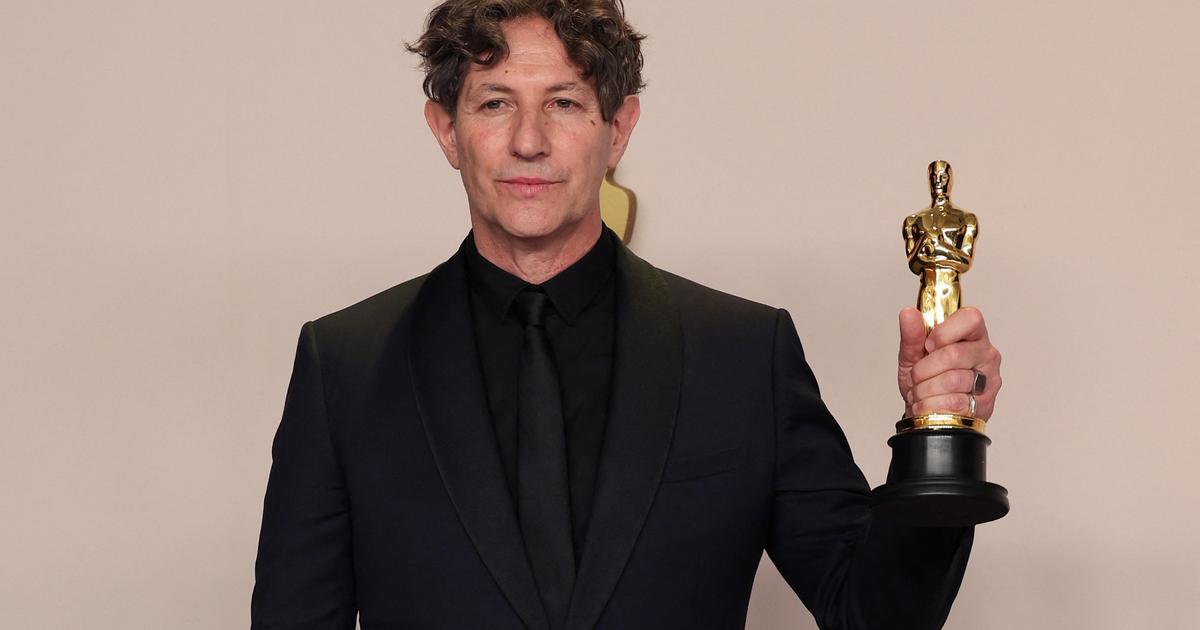“This is not how I imagined it,” laments young recruit Ludwig, nervously trying to bail out the mud of a flooded trench with his own helmet.
His helpless look condenses the brutal shock against reality of a generation of young people who went to fight in the First World War, deceived by a promise of national glory to futilely defend an empire in decline and ended up thrown into a mess of mud. , shrapnel, mustard gas, pools of blood and mangled bodies.
It is the desolate disappointment portrayed
by All Quiet on the Front
, the German blockbuster inspired by the homonymous novel by Erich Maria Remarque (1898-1970) that has achieved what no other German film has ever done before: being nominated for best film at the Oscars and competing with the great titles of the season of the American industry, such as
The Fabelmans
,
Top Gun: Maverick
and
Avatar
.
The great surprise of European cinema, which has benefited from the support of Netflix, which considers it its great asset, has accumulated a total of nine Oscar nominations -among them, adapted screenplay and soundtrack- and 14 at the Bafta British film awards .
More information
'All Quiet at the Front': formidable version of Remarque's anti-war novel about the First World War
“I would have been immensely happy with a best international film nomination.
We didn't expect it”, says an exultant Daniel Brühl, the Spanish-German actor and filmmaker who has a double role in the film: as producer and playing one of the protagonists, the diplomat Matthias Erzberger, sent by the Reich government to sign the armistice between Germany and the Allied Powers.
If Remarque's novel shook consciences a century ago and had already been brought to the big screen twice previously, the new version, the first in German, resonates with intensity in a Europe that lives once again with a war at its doors, the Russian invasion of Ukraine, and strikes a deep note in a Germany that has resisted sending its Leopard tanks to help Ukraine, mired in moral debate over its involvement in the conflict.
The adaptation comes in a context in which the country once again confronts its historical traumas, its role in World War II and the deep anti-militarism of the last generations of Germans.
Daniel Brühl, close-up, in a sequence from 'All Quiet Ahead'.Netflix
Remarque's novel, published in 1928, challenged a long tradition of glorification of war that has had notable spokesmen such as the Roman poet Horace (1st century BC) and his verse
Dulce et decorum est pro patria mori
(It is sweet and honorable to die for the country).
“While they continued writing and speaking, we saw ambulances and dying people;
while they proclaimed service to the State as sublime, we already knew that the fear of death is much more intense”, writes Remarque.
Demystifying, the novel became an international success, later condemned by Nazis and communists, and is still read by generations of German students to this day.
Brühl also read the novel as a teenager and has felt the weight of adapting "a book so sacred in Germany, more so than Goethe or Thomas Mann."
No news at the front
It was made into a film for the first time two years after its publication, in 1930, directed by Lewis Milestone, in what is perhaps the best adaptation of the novel and which has become one of the jewels of anti-war cinema.
His depiction of trench warfare marked a milestone in cinematic storytelling.
It came to the big screen at a time when film could no longer be shot in Germany and Hollywood was establishing itself as a haven for filmmakers, actors and other artists who were beginning to leave Europe.
"It's a masterpiece, an impeccable film," says Brühl over the phone from the Tramuntana mountains, in Mallorca, where he lives for periods with his family: "But we didn't want to make a
remake,
but to reinterpret the novel in a different way, without confining ourselves in the concept of the book.
The new adaptation, directed by Edward Berger, distances itself from the original text and has introduced substantial changes, such as the plot of the signing of the armistice or the outcome itself.
It shows the ravages of combat, such as the irruption of the first tanks, the use of flamethrowers and chemical weapons, and presents shocking scenes such as the absurd knife fight between the protagonist and a French soldier on the side of a crater.
Asked why a German adaptation of a German classic had taken so long, Berger told
Der Spiegel
: "In Germany, the memory of the First World War was displaced by that of the German atrocities committed in the Second World War."
In this country, the memory of both wars still has a lot to do with shame and guilt.
The Germans, he added, had nothing positive to associate these wars with, unlike the British and Americans, for whom war movies tell "heroic stories."
Edward Berger, Felix Kammerer, Malte Grunert, Daniel Brühl and Edin Hasanovic at the premiere of 'All Quiet Front' at the Zurich festival in September 2022. Remy Steiner (Getty Images for Netflix)
Thanks to its availability on Netflix, the film has been very well received abroad, but not so well by German critics, who do not forgive what they consider to be Hollywood excesses in the narration and the addition of characters and plots absent from the original novel. .
The film, says for example the critic of the
Süddeutsche Zeitung
, Huber Wetzel, confirms the prejudice that "no book is so good that it cannot be turned into a bad movie."
Wetzel comes to wonder if the director has read the novel and points out that if he has, it has only been to eliminate as much of the original material as possible and invent new one.
He especially stings that he has changed the ending, which is precisely what gives Remarque's novel its title.
In the book, the protagonist, Paul Bäumer, played by the Austrian actor Felix Kammerer, dies a few weeks before the end of the war: “He fell in October 1918, such a quiet day, so inactive at the front, that the official communiqué was He limited himself to saying that there was no news on the front”, writes Remarque.
Critics have rebuked the writers for stripping the protagonist of the insight he had in the novel, instead making him a stunned observer.
“Berger's hero [...] is not a reflective storyteller like Remarque's,” writes Andreas Kilb in the
Frankfurter Allgemeine Zeitung
, “but a naive, a pure fool who never quite understands what happens to him in the camps. Battle of Flanders to the end.
Oliver Stone 's mute Charlie from
Platoon
, a similarly textured grand story about the Vietnam War, looks like a master of self-knowledge versus Berger's Paul Bäumer,” he spits.
All Quiet on the Front
could become the first German film to win an Oscar since it was won in 2007 by
The Lives of Others
.
For the German film industry, the nine nominations are something "incredible and overwhelming", summarizes Simone Baumann, director of German Films, the organization that promotes German cinema abroad.
"It means that our cinema is at the highest level and that it is recognized, also in the US market."
The film was released in only 60 theaters a month before it could be seen on Netflix.
“The theaters complained;
there was a lot of interest in seeing the film”, explains Baumann, who downplays the criticism in the German media.
It happens every time a German film succeeds abroad, she assures her, as with
The Perfect Man
, by Maria Schrader, chosen by Germany to compete in the Oscars last year.
The anti-war message of Remarque's novel is particularly pervasive at this time, about a year after the Russian invasion of the Ukraine, when no one expected to see a new war in Europe.
“The novel has not lost any relevance;
It has a timeless tone, very modern.
I wish the content was less relevant than it is”, Brühl reaffirms.
Subscribe to continue reading
Read without limits
Keep reading
I'm already a subscriber








/cloudfront-eu-central-1.images.arcpublishing.com/prisa/QMMLZZZRT5DBBKJ3BCMUK42HQQ.jpg)
